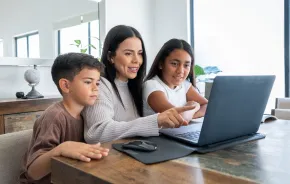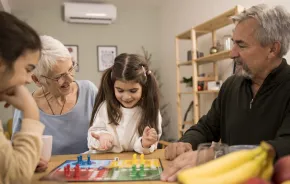
Nearly three-quarters of teens said they often or sometimes check for messages or notifications as soon as they wake up, according to a recent Pew survey of 743 teens and 1,058 parents of teens in the U.S. And if there phone isn’t nearby? Four in ten said they feel anxious.
Teens aren’t the only ones getting anxiety over tech. In the same study, an estimated two-thirds of parents said they’re concerned about their teen spending too much time in front of screens.
The kids are worried, too. Around half of surveyed teens surveyed said they’re concerned about their cell phone usage and 41 percent said they spend too much time on social media. Fifty-two percent said they’re taking steps to limit their time on their phones (that number was 57 percent for social media and 58 percent for video games).
We’re seeing these stats play out locally, too. Another recent survey — this one conducted by Microsoft and YouGov — asked 1,011 parents who have kids under age 18 what they think of technology, both at home and in school. Sixty-three percent said they were concerned about their kids spending too much time on devices at home.
75 percent of surveyed parents believed big tech companies should be helping schools build kids’ digital skills.
The parents felt more positively about tech if it was related to school. Eighty-six percent said they believe that computers and educational software in school are helpful to their child’s education.
“Microsoft found that most parents are quite hopeful and optimistic that technology positively contributes to education and skill development,” says Mark Sparvell, Microsoft’s senior manager in worldwide education.
Why? They're thinking of jobs. In the Microsoft and YouGov survey, 75 percent of surveyed parents believed big tech companies should be helping schools build kids’ digital skills. In Sparvall's experience, that kind of technology in class makes the most difference when it amplifies the work of teachers and prepares students for careers.
“For example, I watched a group of middle school students in a PE class planning an activity for younger students,” he says. “They worked together on shared word document — with one student [working] remote[ly] — to build out the task, negotiate the assessment rubric, implement the activity and then evaluate the session using the [recorded] video,” says Sparvell.
This looked and felt very much like a day at work, he notes.
Of course, more screen time at school means continued conversations at home about how much to be online.
“Be prepared to listen and value the experiences and engagement with technology as potentially positive,” says Sparvell. If parents feel too much screen time is negatively impacting their kid’s life, he recommends working together as a family to establish and respect screen-time boundaries.











